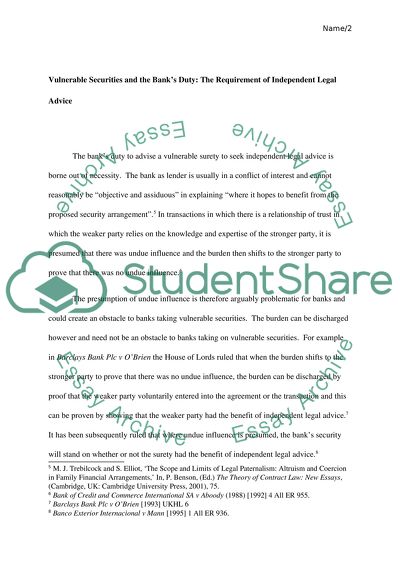Cite this document
(“Banking law Essay Example | Topics and Well Written Essays - 2000 words - 1”, n.d.)
Banking law Essay Example | Topics and Well Written Essays - 2000 words - 1. Retrieved from https://studentshare.org/law/1470046-banking-law
Banking law Essay Example | Topics and Well Written Essays - 2000 words - 1. Retrieved from https://studentshare.org/law/1470046-banking-law
(Banking Law Essay Example | Topics and Well Written Essays - 2000 Words - 1)
Banking Law Essay Example | Topics and Well Written Essays - 2000 Words - 1. https://studentshare.org/law/1470046-banking-law.
Banking Law Essay Example | Topics and Well Written Essays - 2000 Words - 1. https://studentshare.org/law/1470046-banking-law.
“Banking Law Essay Example | Topics and Well Written Essays - 2000 Words - 1”, n.d. https://studentshare.org/law/1470046-banking-law.


